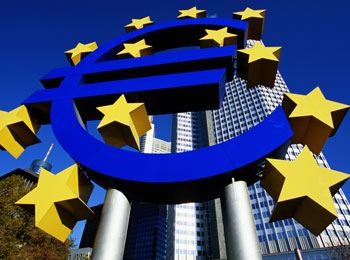Ireland debt crisis: aid moves closer
Ireland moves closer to accepting an EU-backed bailout worth tens of billions of euros to stabilise the economy, though the Irish government says an agreement has not yet been finalised.
Ireland’s Taoiseach tonight told his country there was no need to be ashamed as he opened its books to the International Monetary Fund.
Brian Cowen insisted Irish sovereignty was not for sale, despite predictions from the country’s top banker of an imminent bailout running into tens of billions. “There is no question of loss of sovereignty for Ireland,” Mr Cowen said.
Irish Central Bank governor, Patrick Honohan, earlier said he expects Ireland to accept a “substantial loan” as part of an EU-backed bail-out.
The governor told RTE radio that the loan to help the Irish Republic and its financial crisis would amount to “tens of billions” of euros.
“The expectation is on their part – and personally on my part – that negotiations or discussions will be effective and that a loan will be made available and drawn down as necessary,” he added.
“No government behaving logically would say ‘we will sign up before we have seen the details’.” Ireland’s Europe Minister Dick Roche
The money is expected to come from the International Monetary Fund (IMF) and the EU although the Irish Prime Minister has denied any loan has been agreed.
Our Economics Editor, Faisal Islam, says it is significant that Mr Honohan is Ireland’s representative on the European Central Bank.
“I sense that we are close to the point of capitulation on the part of the Irish Government,” he said. “They still have not said ‘yes’. but Ireland’s man on the ECB appears to have said ‘yes’, so the pressure must be huge.”

Interviewed on Channel 4 News, Ireland’s Minister for European Affairs, Dick Roche, said the country had done everything that had been required of it by Europe and – by the end of 2011 would be two-thirds of the way to meeting set targets.
There was a problem, but it was not a sovereign debt problem – and it was a European problem, not just an Irish problem, he insisted. There would be an analysis carried out of what needed to be done.
“The fact is tonight that there are discussions, but the IMF has just made it clear that there has been no request from Ireland for a bailout,” he said.
“No government behaving logically would say ‘we will sign up before we have seen the details’. That is an irrational way to behave.”
IMF experts
Up to a dozen IMF experts will open talks with the Government and State banking chiefs in Dublin tomorrow as a trawl of the nation’s finances begins.
The IMF tonight sought to ease fears that the poorest would be hit hardest by any agreement. IMF spokeswoman Caroline Atkinson said a bailout would not ignore the potential impact of savage cuts on the least well-off.
“Over the last couple of years we have been very focused on the need for what we have been calling social conditioning – the need to protect the very poorest and the most vulnerable,” she said.
Ms Atkinson refused to go into how much money Ireland might need or how that cash might be distributed across the most stricken sectors of the economy – the banks.
But the IMF has insisted the Irish Government had not asked for a financial rescue package.
Representatives of the IMF, the European Central Bank and the European Commission will meet tomorrow to discuss Ireland’s four-year budgetary plan and the restructuring of the banking sector.
Geoffrey Lewis – the Irish representative of the independent accountacy advisers, BKR International – said there was now a general acceptance that the IMF was coming in.
“Irish business will welcome this as it takes politics out of the financial arena,” he said.
British aid?
Yesterday Chancellor George Osborne said Britain was considering all options for financial aid to Ireland, but refused to say whether help would amount to bilateral loans or contributions to an EU bailout package.
Describing Ireland as Britain’s “closest neighbour”, he said it was in the UK’s “national interest” that the Irish economy is successful and its banking system stable.
But during questions on future Commons business today, Conservative MPs told Commons leader Sir George Young that British taxpayers must not pay for an Irish bailout.
Senior Tory MP Edward Leigh and Eurosceptic Conservative Peter Bone said the matter needed to be debated urgently by MPs.
Mr Leigh said: “The British people want to be assured at a time when very painful cuts are being made here that good money is not being thrown after bad in driving the Irish further into the sclerotic arms of the Euro which caused the problems in the first place.”
-
Latest news
-
Tim Booth of the band James’ on agism in music, topping the charts and AI6m

-
As India goes to the polls in the world’s largest election – what do British-Indians think?6m

-
Tees Valley: Meet the candidates in one of the biggest contests coming up in May’s local elections4m

-
Keir Starmer says public sector reform will be a struggle7m

-
Nicola Sturgeon’s husband Peter Murrell charged with embezzlement of funds from SNP1m

-




